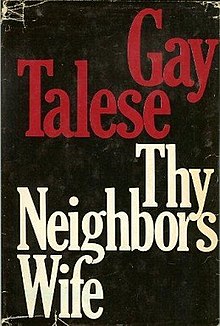
The views of the various different religions and religious believers regarding human sexuality range widely among and within them, from giving sex and sexuality a rather negative connotation to believing that sex is the highest expression of the divine. Some religions distinguish between human sexual activities that are practised for biological reproduction and those practised only for sexual pleasure in evaluating relative morality.

Eroticism is a quality that causes sexual feelings, as well as a philosophical contemplation concerning the aesthetics of sexual desire, sensuality, and romantic love. That quality may be found in any form of artwork, including painting, sculpture, photography, drama, film, music, or literature. It may also be found in advertising. The term may also refer to a state of sexual arousal or anticipation of such – an insistent sexual impulse, desire, or pattern of thoughts.
Queer studies, sexual diversity studies, or LGBTQ studies is the study of topics relating to sexual orientation and gender identity usually focusing on lesbian, gay, bisexual, transgender, gender dysphoric, asexual, aromantic, queer, questioning, and intersex people and cultures.

Alexander Comfort was a British scientist and physician known best for his nonfiction sex manual, The Joy of Sex (1972). He was an author of both fiction and nonfiction, as well as a gerontologist, anarchist, pacifist, and conscientious objector.
"New queer cinema" is a term first coined by the academic B. Ruby Rich in Sight & Sound magazine in 1992 to define and describe a movement in queer-themed independent filmmaking in the early 1990s.
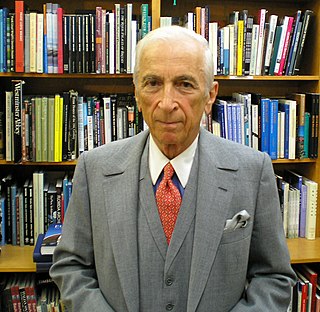
Gaetano "Gay" Talese is an American writer. As a journalist for The New York Times and Esquire magazine during the 1960s, Talese helped to define contemporary literary journalism and is considered, along with Tom Wolfe, Joan Didion, and Hunter S. Thompson, one of the pioneers of New Journalism. Talese's most famous articles are about Joe DiMaggio and Frank Sinatra.

Barbara Jean Hammer was an American feminist film director, producer, writer, and cinematographer. She is known for being one of the pioneers of the lesbian film genre, and her career spanned over 50 years. Hammer is known for having created experimental films dealing with women's issues such as gender roles, lesbian relationships, coping with aging, and family life. She resided in New York City and Kerhonkson, New York, and taught each summer at the European Graduate School.
David Thorstad was an American political activist who co-founded or ran a number of homosexual rights groups following the Stonewall riots in 1969, including as a former president of New York's Gay Activists Alliance. He later engaged in pedophilia and pederasty activism with the North American Man/Boy Love Association (NAMBLA), of which he was a founding member.

Valerie Martin is an American novelist and short story writer.
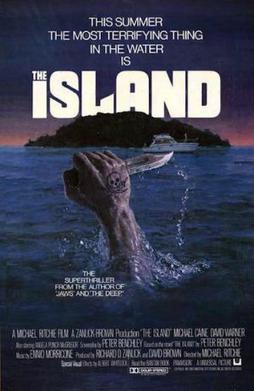
The Island is a 1980 American action adventure-thriller film directed by Michael Ritchie and starring Michael Caine and David Warner. The film was based on a 1979 novel of the same name by Peter Benchley who also wrote the screenplay. It is about a savage group of pirates, made up of outcasts, thieves, and murderers, who are hidden from the outside world by an uncharted Caribbean island, and who have raided boats to sustain themselves since the 17th century.

Making Love is a 1982 American drama film directed by Arthur Hiller and starring Kate Jackson, Harry Hamlin and Michael Ontkean. The film tells the story of a married man coming to terms with his homosexuality and the love triangle that develops between him, his wife and another man.
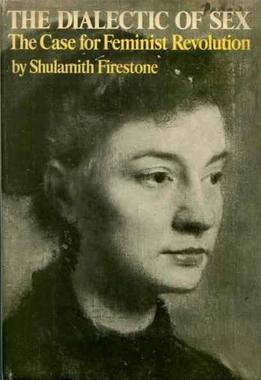
The Dialectic of Sex: The Case for Feminist Revolution is a 1970 book by the radical feminist activist Shulamith Firestone. Written over a few months when Firestone was 25, it has been described as a classic of feminist thought.

Jeremy Slate was an American film and television actor, and songwriter. He is best known for portraying Larry Lahr in The Aquanauts (1960–1961), Chuck Wilson in One Life to Live (1979–1987) and as Deputy Sheriff Ben Latta in The Sons of Katie Elder (1965).
Sandstone Retreat, officially the Sandstone Foundation for Community Systems Research, was a clothing-optional, open sexuality resort for swingers located at Sandstone Ranch, a 15-acre (6.1 ha) estate in the Santa Monica Mountains overlooking Malibu and the Pacific Ocean.
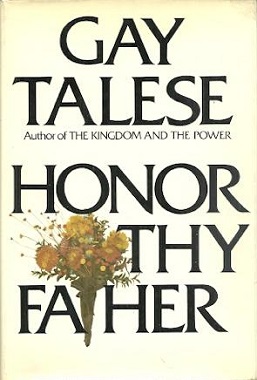
Honor Thy Father is a 1971 book by Gay Talese, about the travails of the Bonanno crime family in the 1960s, especially Salvatore Bonanno and his father Joseph "Joe Bananas" Bonanno.

The Homosexual Matrix is a book by American psychologist Clarence Arthur Tripp, in which the author discusses the biological and sociological implications of homosexuality, and also attempts to explain heterosexuality and bisexuality. The book was first published in 1975 by McGraw-Hill Book Company; it was republished in a revised edition in 1987. Based on his review of the evidence, Tripp argues that people do not become homosexual due to factors such as hormone levels, fear of the opposite sex, or the influence of dominant and close-binding mothers, and that the amount of attention fathers give to their sons has no effect on the development of homosexuality. He criticizes Sigmund Freud and argues that psychoanalytic theories of the development of homosexuality are untenable and based on false assumptions. He maintains that sexual orientation is not innate and depends on learning, that early puberty and early masturbation are important factors in the development of male homosexuality, and that a majority of adults are heterosexual because their socialization has made them want to be heterosexual. He criticizes psychotherapeutic attempts to convert homosexuals to heterosexuality and argues in favor of social tolerance of homosexuality and non-conformist behavior in general.

The Homosexualization of America, The Americanization of the Homosexual is a 1982 book about LGBT rights in the United States by the gay rights activist Dennis Altman, in which the author discusses the emergence of gay people as a minority group. The book received positive reviews, crediting Altman with providing a useful discussion of gay people in the United States.
Thy Neighbor's Wife may refer to:

Parents' Day is a 1951 novel by Paul Goodman. Written as autobiographical fiction based on the author's experiences teaching at the upstate New York progressive boarding school Manumit during the 1943–1944 year, the book's narrator grapples with his homosexuality and explores a series of sexual attractions and relationships that culminates in his being fired by the school. Goodman wrote the novel as part of a Reichian self-analysis begun in 1946 to better understand his own life. He struggled to find a publisher and ultimately self-published through a friend's small press. Reviewers remarked on unease in Goodman's sexual revelations, lack of self-awareness, and lack of coherence in the text. Parents' Day sold poorly and has been largely forgotten, save for some recognition as an early gay American novel.
